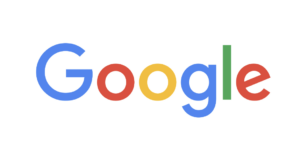In a significant move, Google has revealed extensive changes to its Gambling and Games Advertising Policy, which will come into effect in April 2025. The updated framework introduces tighter restrictions on gambling-related ads, implements stricter compliance requirements, and refines country-specific regulations. Additionally, Google reinforces oversight of affiliate marketing to ensure greater transparency and responsible advertising practices.
New Guidelines for Gambling Advertisers
As part of the overhaul, Google will implement stricter advertising regulations for online casinos, sportsbooks, lotteries, and skill-based gaming operators, reinforcing compliance with local gambling laws. Advertisers must meet more rigorous certification requirements before their ads are approved. The changes will also restrict advertisement visibility in specific markets where gambling regulations are unclear or developing.
Another significant change includes the introduction of country-specific advertising rules. While Google’s earlier policies permitted a wide-ranging approach to gambling advertisements, the recent update customises permissions according to regional laws and local licensing requirements. Advertisers must now obtain country-specific certifications to run gambling-related campaigns, ensuring compliance with national gaming authorities.
Affiliate Advertising Faces Increased Scrutiny
One of the most significant changes in Google’s update is the crackdown on affiliate advertising for gambling-related content. The technology giant is imposing stricter limitations on third-party marketers who promote gambling operators through advertisements, especially those directing traffic to multiple gambling platforms.
Under the new rules, affiliates must disclose their partnerships and comply with regional gambling advertising laws. Additionally, in certain jurisdictions, Google may prohibit affiliate gambling ads, limiting exposure to only direct operators with valid licenses. These measures aim to reduce misleading advertising practices and ensure a more responsible gambling ecosystem.
Google Enforcement and Compliance
Beginning in November 2024, Google will introduce a stricter recertification process. This implies that businesses with a Gambling and Games Certification must routinely update their credentials in the event of significant changes to ownership, licensing, or operational scope. Failure to comply may result in ad disapproval or account suspension.
Additionally, Google is expected to enhance its monitoring efforts, using AI-driven tools to detect non-compliant ads, misleading promotions, and unauthorized operators. These enforcement measures will help prevent illegal gambling ads from reaching audiences in restricted regions.
Industry Reaction
The gambling industry has responded with mixed reactions to Google’s latest policy update. Some operators appreciate the effort to standardize compliance across markets. However, others worry that increased restrictions might limit advertising reach, especially for smaller operators and affiliates.
Gambling businesses aiming to adapt to these changes must focus on obtaining the required certifications. This includes modifying their advertising strategies to comply with local regulations and maintain complete transparency in their marketing campaigns.
A Regulated Future for Gambling Ads
Google’s policy updates mark a significant shift in digital gambling marketing. By emphasising regional compliance, tightening rules on affiliate marketing, and introducing stricter recertification processes, the company is creating a strong framework for responsible gambling advertising.
With the new rules coming into effect, gambling operators and affiliates must adapt to regulatory changes. They must ensure advertising strategies comply with the latest policy. The new framework will reshape how online gambling brands promote their services, creating a more structured, transparent, and regionally regulated landscape.












